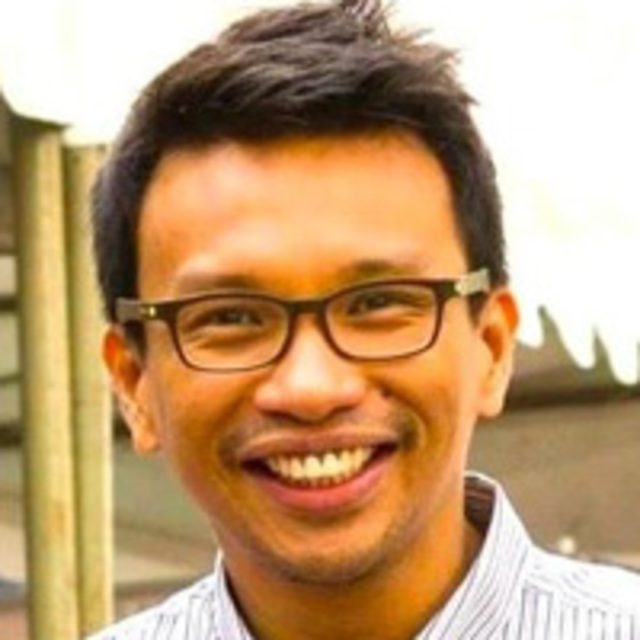SUMMARY
This is AI generated summarization, which may have errors. For context, always refer to the full article.
![[OPINION] Duterte and the hypocritical Church](https://www.rappler.com/tachyon/r3-assets/612F469A6EA84F6BAE882D2B94A4B421/img/4E48C403C5D54D52A5462B73B7E43011/church-duterte.jpg)

Duterte has repeatedly lambasted Catholic priests. He has called them gay, useless, and corrupt. The message is clear. For President Duterte, the Catholic Church is a hypocritical institution. Thus it has no credibility to call him out for his errors.
Is this a case of the pot calling the kettle black?
This, in my view, is an important question that needs to be confronted. Duterte has gone largely unscathed by his tirades against the clergy. In a religious society like the Philippines, one might expect that priests have an untouchable place.
But Duterte has kept attacking them. To do so has been useful for the president to maintain his popularity. The president remains popular not only because of his gutter language. Cursing, after all, can only go so far in evoking authenticity.
What matters is the message itself.
Why does it work?
Every time he attacks priests for their hypocrisy, Duterte echoes the sentiments of many.
For one, surveys show that the overwhelming majority of Filipinos are satisfied with the war on drugs, exactly what priests have been criticizing. The war on drugs convinces many that communities are now safer. Forget the fact that people also know that innocent lives may have been sacrificed. What is important is that they feel that neighborhoods that used to be crime-infested are now free from drug users.
Thus whenever priests attack the war on drugs, the public can easily accuse them of not appreciating the “greater good” that it has done for the majority. A recent survey by Pulse Asia shows that for the public, the war on drugs is the administration’s most important achievement.
This is why invoking human rights on the part of activists and the Church does not work. Between human rights and safety, Filipinos in a climate of fear will definitely choose the latter. This leads me to the second point.
The way Duterte attacks bishops and priests for their hypocrisy resonates with people’s desire for action. Duterte accuses priests of not doing anything apart from criticizing him. Recently he got fired up to even assert that bishops should be killed instead.
To accuse priests of not doing anything makes sense for many Filipinos. We often ask each other if we have done something to help improve the situation. We better shut up if we have not.
Duterte, by contrast, is a man of action. There is a reason Duterte is called tatay. He is the loving father who will do whatever it takes to defend his children. Duterte himself has said this many times. Speaking before boy scouts in Malacañang, Duterte declared “talagang pumapatay ako ng tao, ‘pag ginalaw ninyo ang mga anak namin.”
Admitting mistakes
Last week I spoke at the Augustinian Vocations International Conference in Cebu. I was in the company of priests, nuns, and lay from different Augustinian communities and schools. One of the speakers presented survey findings about what people think of priests. Among the top answers is that priests are “mukhang pera.”
While nobody in the audience was prepared to hear this, nobody was surprised either. In spite of what they do especially in the poorest communities, priests, nuns, and their co-workers always have to work against public perceptions about many things.
They not only have to deal with allegations that they are corrupt. They also have to to confront issues about sexual abuse and other hypocrisies. These are serious matters that Duterte and his allies could easily harp on to discredit the work of the Catholic Church.
But to simpy deny these issues, as many well-intentioned religious people have done, may not necessarily be the best way forward.
If Church leaders were willing to criticize the president for his mistakes, they also need to admit their own when confronted – in public if need be. This was what Fr Tony Banks, Assistant General of the Order of Saint Augustine, told me when we had lunch at the conference.
Public role
To admit its mistakes is crucial for the future of the Catholic Church in the Philippines. Inasmuch as Duterte needs to be held accountable for his atrocities, Church leaders have no choice but to be transparent about how they confront their own corruption.
The Philippine Trust Index shows that while the Catholic Church is the most trusted institution among Filipinos, trust is generally declining. This is a warning sign because public trust rests on institutional credibility.
To do so of course is not to lose sight of that which still makes the Catholic Church a socially relevant institution.
In many communities around the country, Catholic groups are doing what they can do to help the victims of the war on drugs. They are providing psychosocial interventions, legal support, and even scholarship grants for left-behind children.
For the Catholic Church, reversing public opinion for the war on drugs is an ordeal in itself. Converting Duterte may not be possible at all.
And so this crisis situation – if that’s what it may be called – continuously demands institutional introspection.
What does it mean to be a discredited religious institution in a society that cries out for justice? – Rappler.com
Jayeel Cornelio, PhD is a sociologist of religion at the Ateneo de Manila University. He is the author of the book Being Catholic in the Contemporary Philippines: Young People Reinterpreting Religon (Routledge 2016). Follow him on Twitter @jayeel_cornelio.
Add a comment
How does this make you feel?
There are no comments yet. Add your comment to start the conversation.